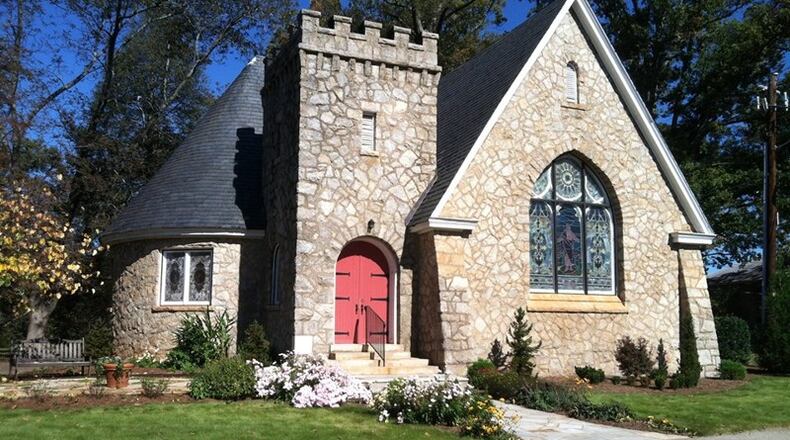Since Decatur Mayor Patti Garrett announced Tuesday that the city is “in conversation with” the United Methodist Children’s Home about purchasing its property, rumors have surfaced that a deal between the city and the Home may happen quickly. But John Cerniglia, Vice President of Development at the UMCH, says there’s no deal yet with anybody.
Cerniglia says he’s fielded a number of calls since the Home’s board of trustees voted Jan. 17 to sell the entire property, from Realtors, builders, developers, brokers — and the city of Decatur — making no agreement with any of them.
“My first step,” Cerniglia said, “is figuring out where to put our (80) residents and finding office space for our 55 employees.”
Garrett’s announcement about the UMCH property came at the end of her state of the city speech, the largest annual gathering of business, political and educational elite.
“That’s a once in a lifetime property,” said Bill Adams, president of Atlanta-based Adams Realtors and an occasional adviser to the city. “It would be a transformative deal. I can’t think of anything inside I-285 with that much land, where the soil’s not contaminated, and where you don’t have to tear a lot down.”
The 77-acre tract, the size of 59 football fields, or 42 percent the size of Piedmont Park, features rolling terrain, wetlands, a lake, thick woods, sprawling, pasture-like green space (for a century much of it was farmland) and 31 buildings, seven of which were built between 1903 and 1919. Decatur, in contrast, is often considered Georgia’s densest city.
City Manager Peggy Merriss, who’s fond of saying “nothing moves fast in a democracy,” said, “I’m not going to add to what Mayor Garrett said Tuesday. I look at this as long-term with a lot of moving pieces.”
One of those pieces is how to pay for the tract, which a land planner the Home hired last year valued at $35 million. That likely could include a combination of sources such as a general obligation bond, a public-private partnership, a millage increase, the city’s reserve fund or money set aside for green space acquisition.
Merriss didn’t want to comment on funding, but did say the property could be annexed without going through the Legislature. The Home, she said, could petition the city for annexation prior to any sale.
Another piece is what, exactly, to put on the property. Decatur planners want to focus on senior affordable housing and cottage court housing over another mixed-use project or commercial development.
The city desires green space. As of July 2015 only 2.1 percent of Decatur’s land was used for parks (or 4.12 percent counting the city cemetery), according to research by Downtown Decatur Neighbors. This compares to 5.2 percent for Atlanta and 8.4 percent nationwide in both medium-high and medium-low density areas.
Meantime, City Schools Decatur’s K-12 enrollment has nearly doubled since the 2009-10 year, while growth in the recreation department has similarly exploded. Though many of Decatur’s recreation facilities received state-of-the art facelifts in the past decade, the city has practically the same number of gyms and fields it had 70 years ago.
“We definitely have a need we can’t meet with current facilities,” School Superintendent David Dude said. “I have talked to Peggy about (the UMCHG) property, but the talks are very preliminary. At this point we are not a co-purchaser, but we are looking for an opportunity to partner.”
About the Author
The Latest
Featured


